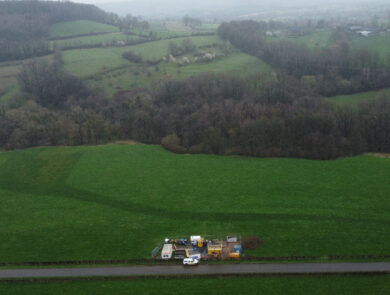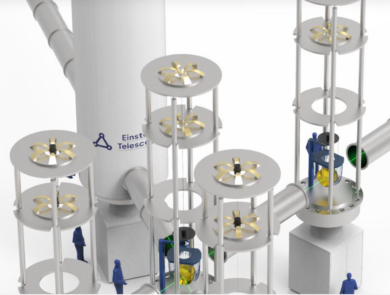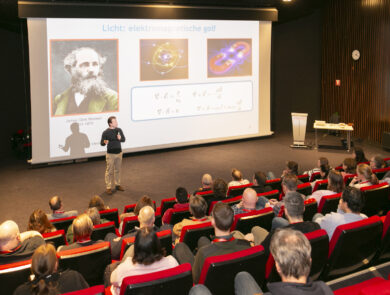Euregio Meuse-Rhine: ‘Boldly tackling structural change together’
On 9 April, there was a Parliamentary Day in Berlin. Representatives of the Aachen region and the Euregio Meuse-Rhine discussed the challenges of a border region and the opportunities of the Einstein Telescope for the region with parliamentarians and guests from politics and administration. The Euregio Meuse-Rhine is one of the best-connected border regions in Europe. For decades, cooperation at various levels has taken place and the Euregio has been jointly developed.
In Berlin, representatives of the Aachen region and the Euregio Meuse-Rhine discussed the obstacles and, most importantly, the many opportunities of a border region with members of the Bundestag and guests. The event was organised by the Region Aachen Association and the EGTS Euregio Meuse-Rhine.
The conversation during the “Parliamentary Afternoon” included the challenges brought by the end of coal mining. “The Euregio Meuse-Rhine has the best conditions for structural change thanks to its excellent cross-border networks of science and business. It is important that we boldly address the evaluated future projects together,” said Tim Grüttemeier, Vice-Chairman of the Shareholders’ Meeting of the Zukunftsagentur Rheinisches Revier and Councillor of the StädteRegion Aachen.

Opportunities
One of these important projects is the Einstein Telescope, which Grüttemeier is not alone in hoping it will become part of the solution. In addition to the outstanding scientific aspects, the telescope is also an economic megaproject that can generate 1500 direct and indirect jobs over the next 50 years, including construction. “An opportunity the Euregio cannot miss,” says District Chairman Thomas Wilk, Chairman of the Cologne District Government, Chairman of the Region Aachen Association, and Board Member of the EGTS Euregio Meuse-Rhine. However, federal-level support is also needed for successful realisation.
The subsequent “Parliamentary Evening” was organised under the motto “breaking down barriers to make daily cross-border life easier”. Although cross-border living, working, learning, and life is a normal part of daily life for many of the four million residents of the Euregio Meuse-Rhine, it is complicated by administrative obstacles. National rules and laws are not tailored to border regions. Reason enough to discuss cross-border challenges extensively in Berlin.

New dimensions
“30 percent of Europe’s residents live in border areas. If we manage to bring the Einstein Telescope to the Euregio Meuse-Rhine, this kind of euregional cooperation will open up new dimensions for cross-border cooperation in Europe”, emphasises Emile Roemer, Chairman of the EGTS Euregio Meuse-Rhine and Commissioner of the King in the Dutch province of Limburg.
The Einstein Telescope is a design concept for a European gravitational wave detector of the so-called third generation, which will be about ten times more sensitive than current instruments. It will be able to analyse a thousand times larger area of the universe in search of gravitational waves and detect sources for which the current instruments are too weak.


